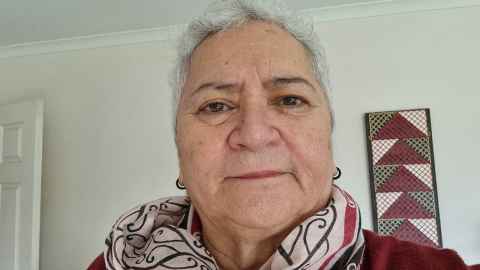How common is mate wareware (dementia) among Māori?
30 June 2022
Researchers will study the toll mate wareware, or dementia, is taking on Māori.

A $1.1 million study led by Dr Makarena Dudley of the University of Auckland-Waipapa Taumata Rau aims to determine the prevalence of mate wareware (dementia) among Māori.
Researchers will interview 550 Māori across the country in the three-year project, “He rapunga hauora mō te mate wareware,” which was announced by the Health Research Council.
“There’s never been a detailed population-level study of mate wareware among Māori,” says Dr Dudley, a neuropsychologist with a long history of researching the condition and advocating for better care.
“It’s crucial to learn the numbers to inform government policy and improve services for whānau living with mate wareware and their caregivers,” says the academic in the School of Psychology in the Faculty of Science.
Researchers will knock on doors in Kaitaia, Tāmaki Makaurau (Auckland), Kirikiriroa (Hamilton), Whakatāne and Ōtautahi (Christchurch), asking Māori residents aged 65 and over if they are willing to be interviewed and assessed for mate wareware.
Dementia is an umbrella term for neurodegenerative conditions associated with aging that can cause memory loss, problems with judgement and reasoning, wandering, sleep problems, mood swings and apathy.
Māori accounted for 6.2 percent of New Zealanders living with dementia – or 4,306 of 70,000 people – in estimates in the 2020 New Zealand Dementia Economic Impact Report, but Dr Dudley says that figure is likely too low. Māori have worse odds for developing mate wareware than non-Maori.
Media contact
Paul Panckhurst | media adviser
M: 022 032 8475
E: paul.panckhurst@auckland.ac.nz